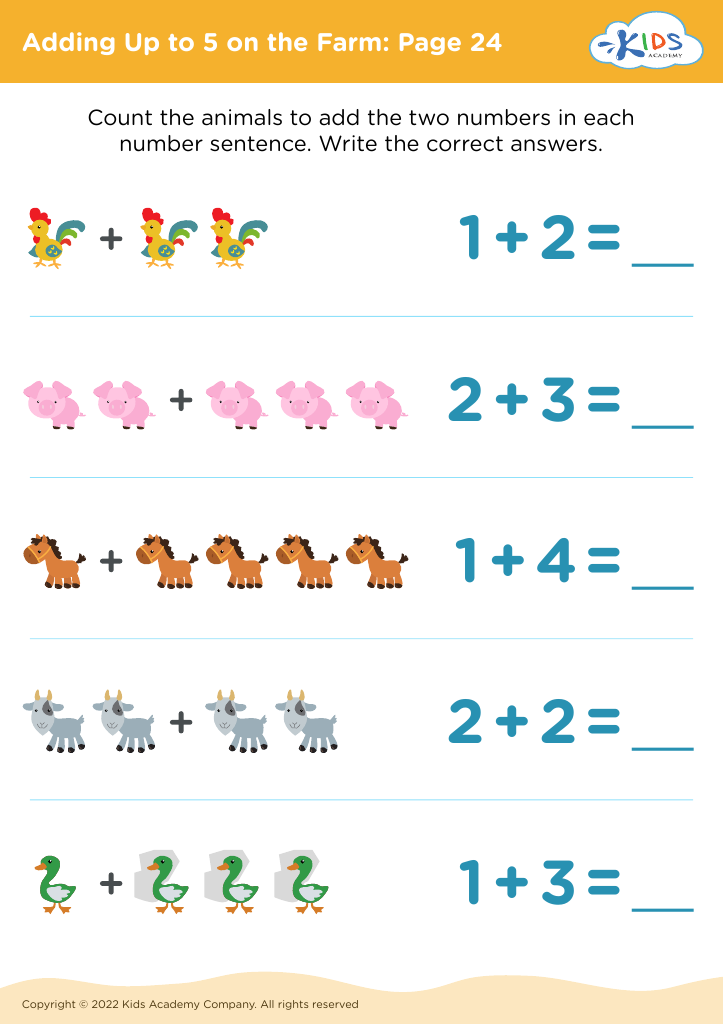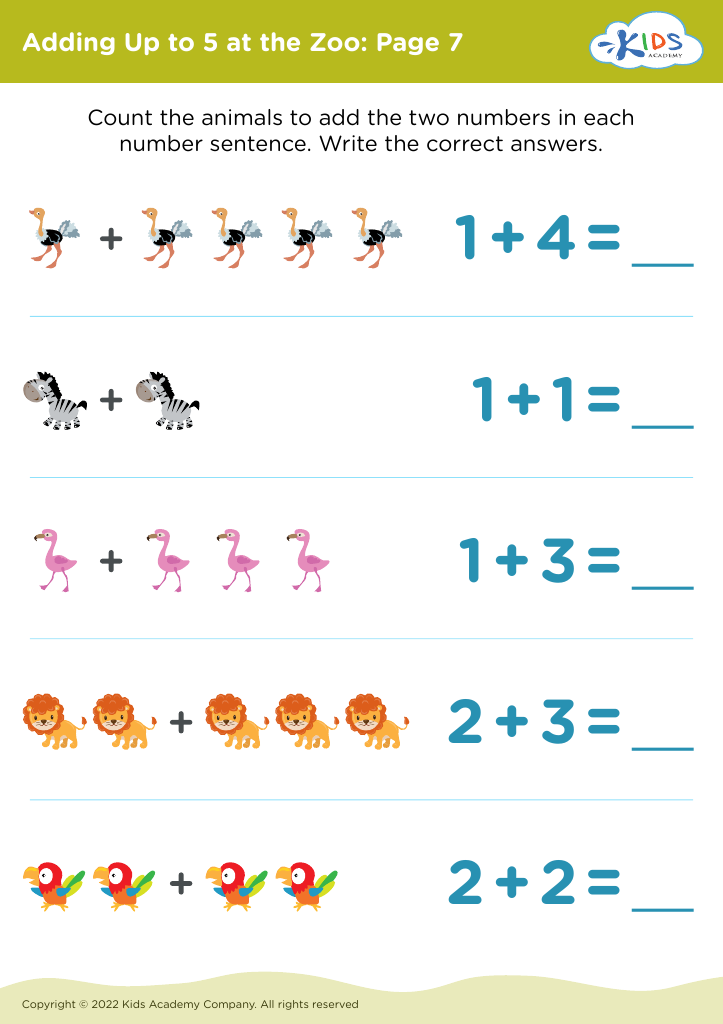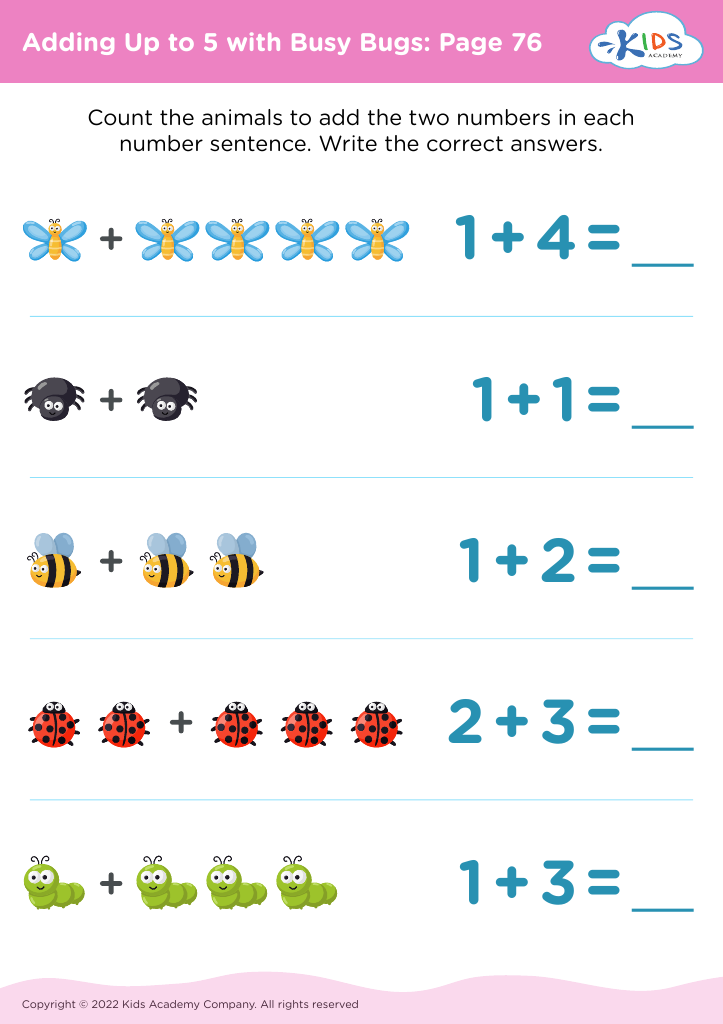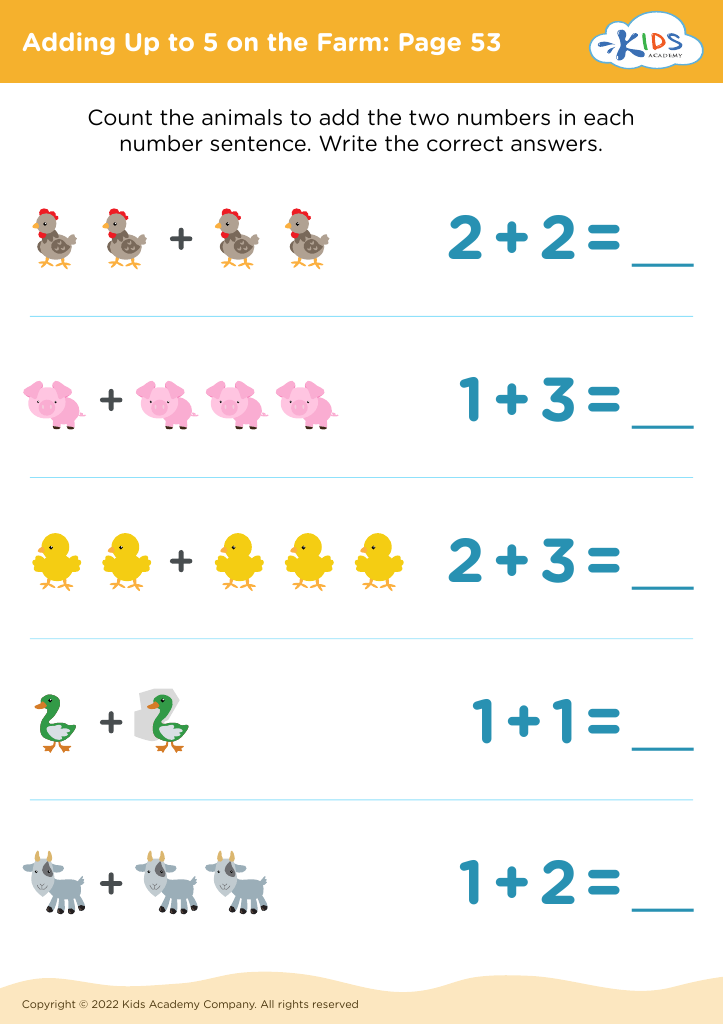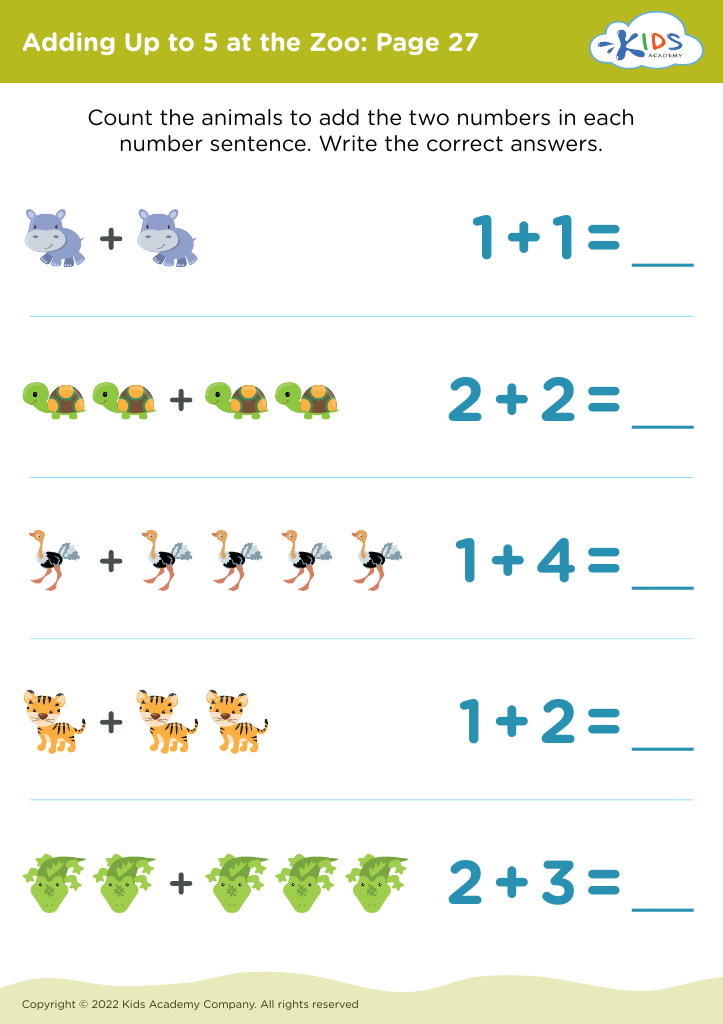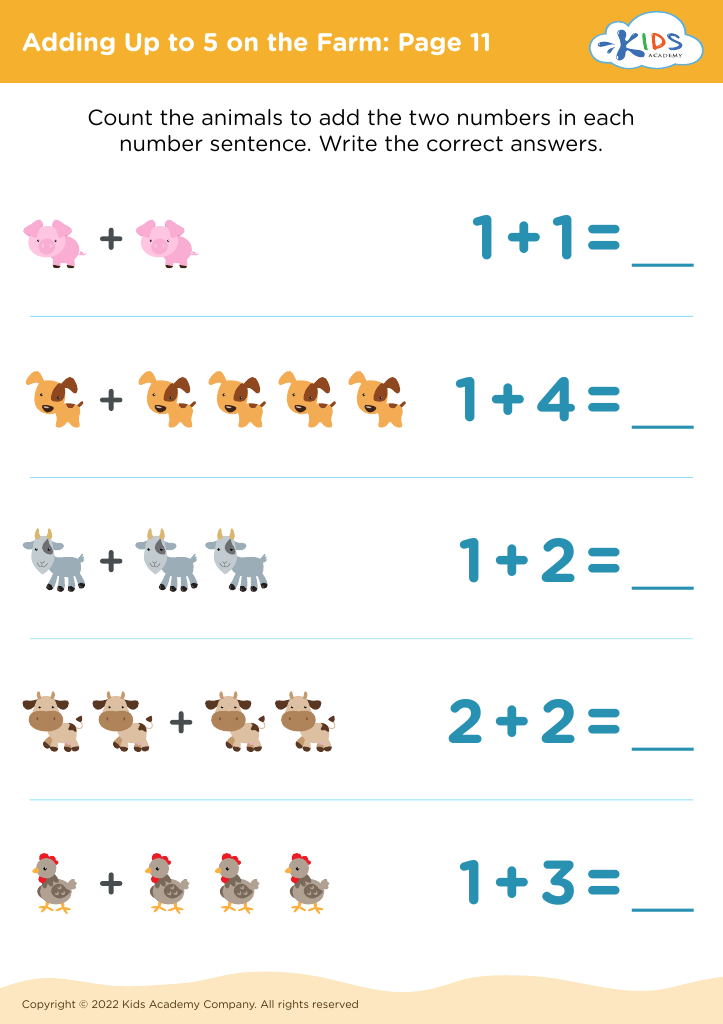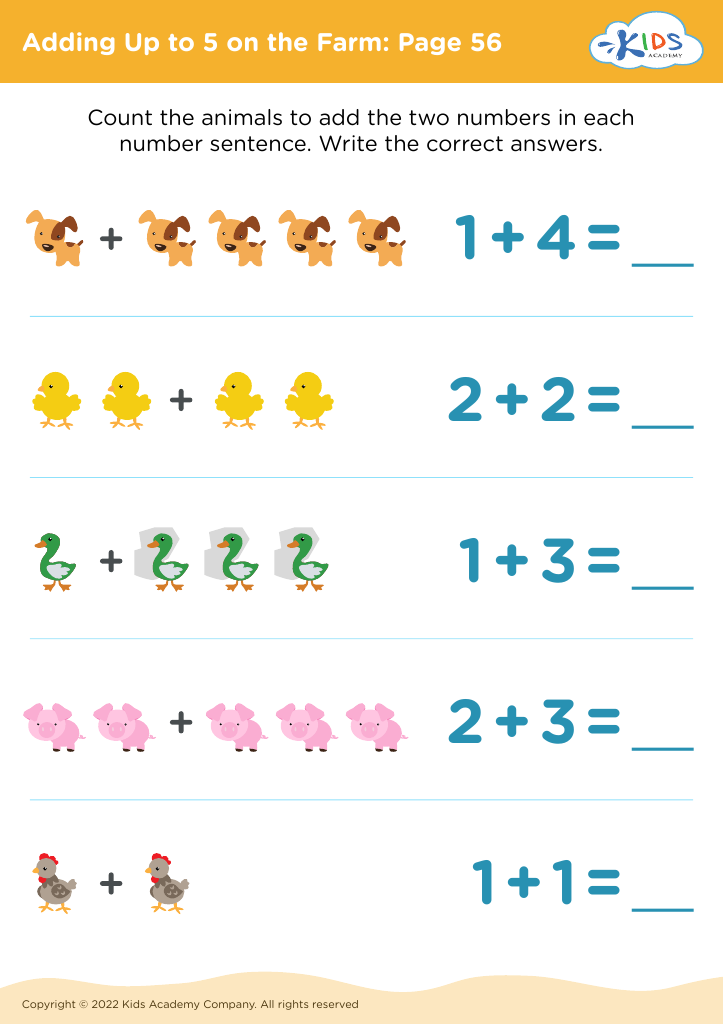Basic Addition Skills Math Worksheets for Ages 3-8 - Page 2
286 filtered results
-
From - To
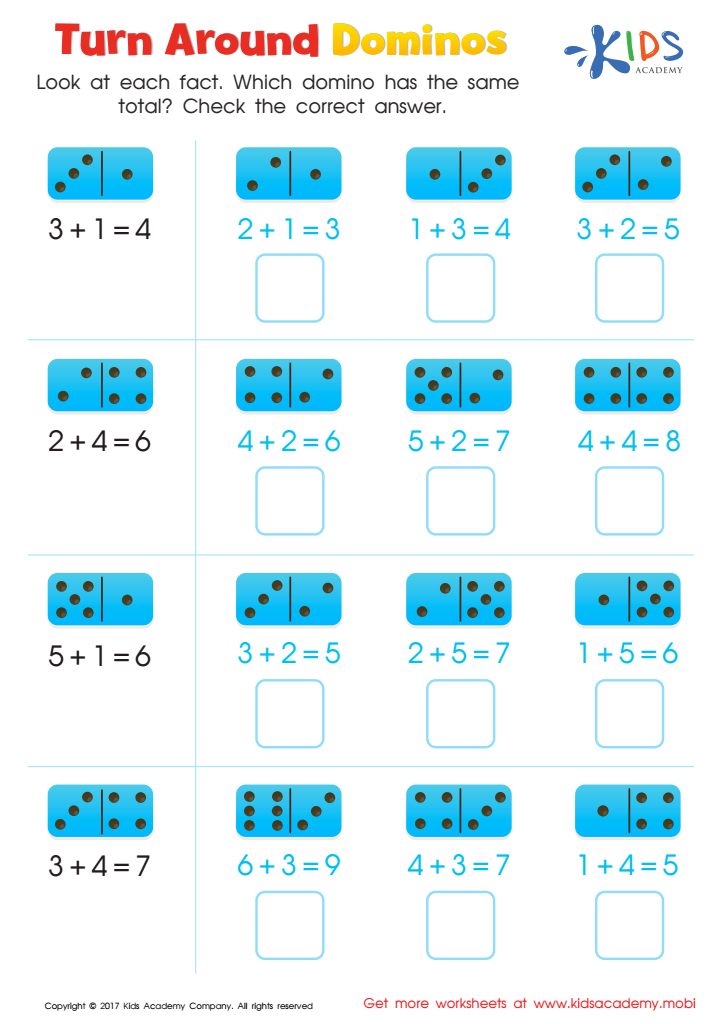

Turn Around Dominos Worksheet
For young children, foundational skills in basic addition are crucial. At ages 3-8, children’s brains are highly adaptable and capable of absorbing new concepts quickly. Developing basic addition skills during these early years sets the stage for later math success and overall academic achievement. Understanding addition helps children build problem-solving skills and logical reasoning, essential not only in math but across various subjects and everyday life.
Learning addition in these formative years equips children with the ability to manage money, time, and quantities with confidence, forming a foundational comprehension that will support more advanced arithmetic and mathematical concepts like subtraction, multiplication, division, and beyond. Moreover, early competency in math can boost children’s self-esteem and academic confidence, encouraging them to participate more actively and eagerly in school.
Parents and teachers who prioritize basic addition also promote cognitive development, as math activities tend to improve memory, enhance concentration, and solidify understanding through repeated practice. Furthermore, incorporating fun, engaging math games and activities can make learning enjoyable for young children, fostering a positive attitude toward mathematics from an early age.
In summary, ensuring children aged 3-8 develop basic addition skills lays a critical foundation for their future education, enhances cognitive abilities, and promotes a lifelong positive relationship with learning and problem-solving.
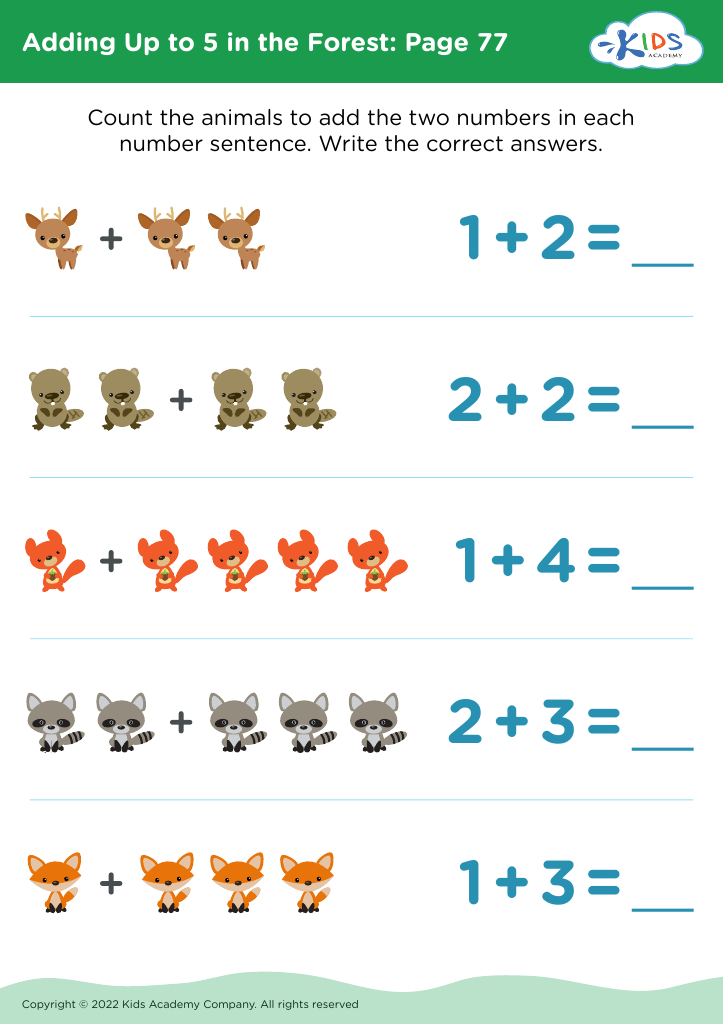
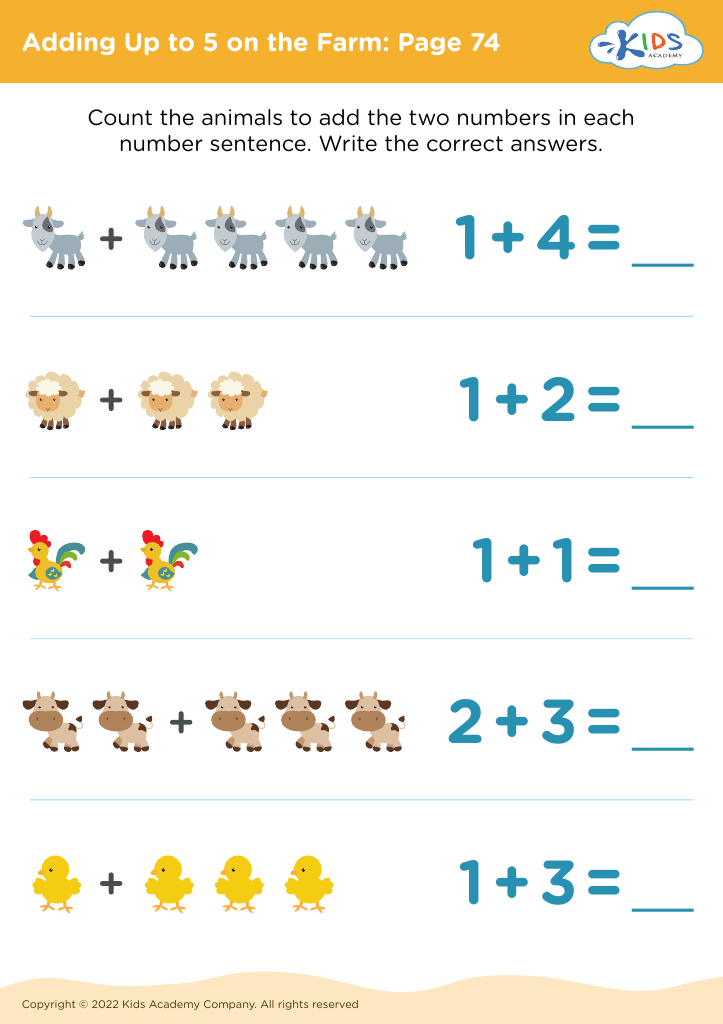
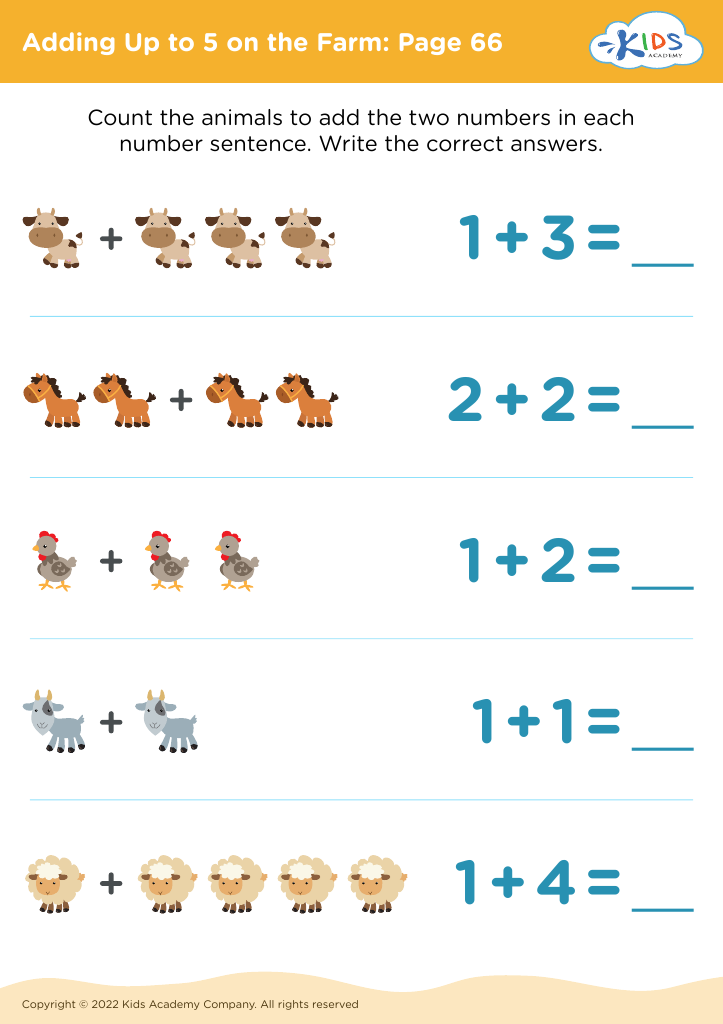
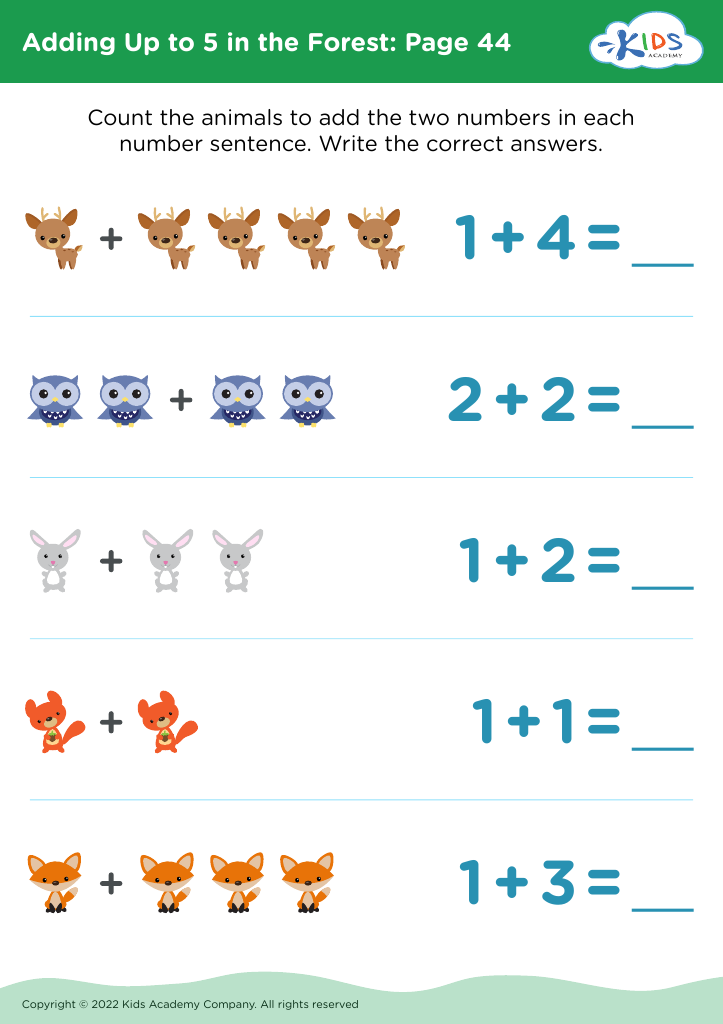
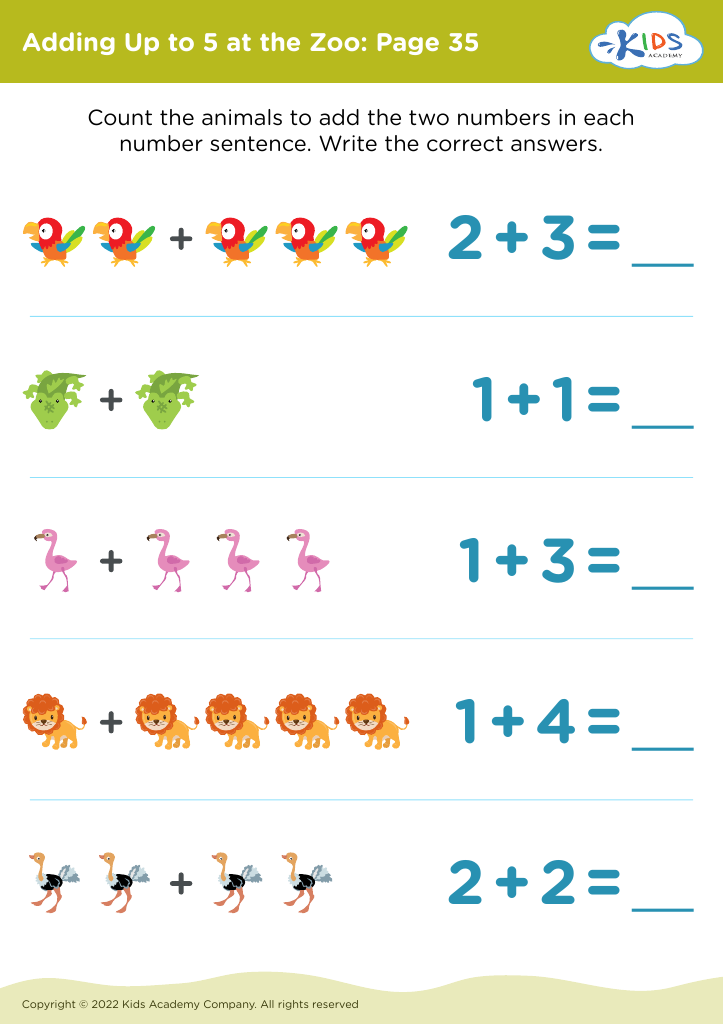

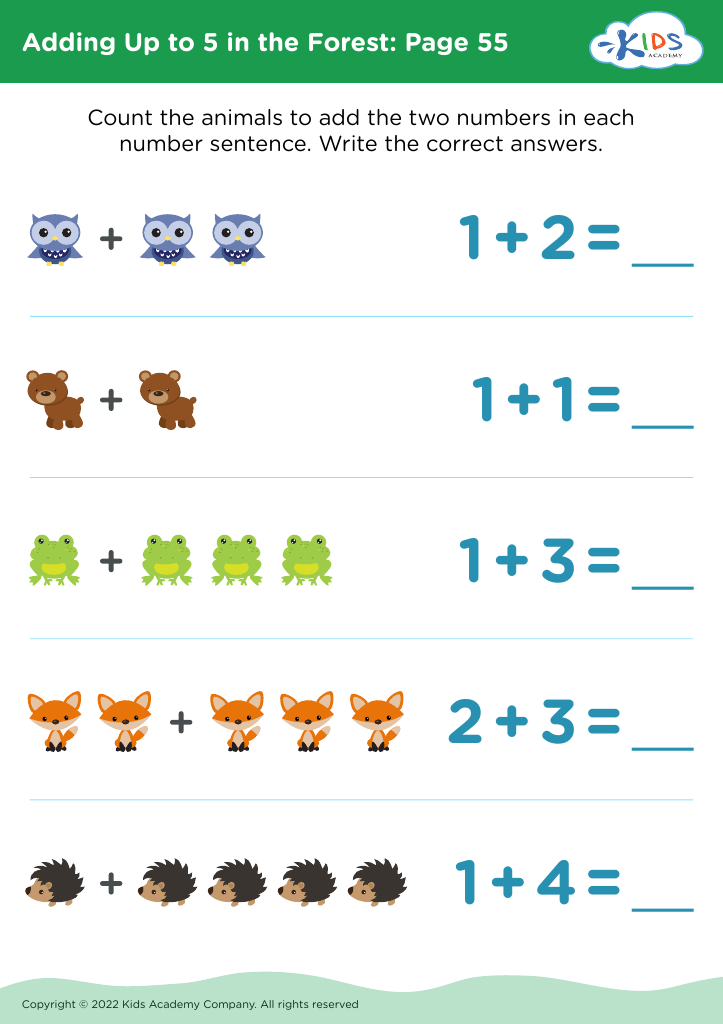
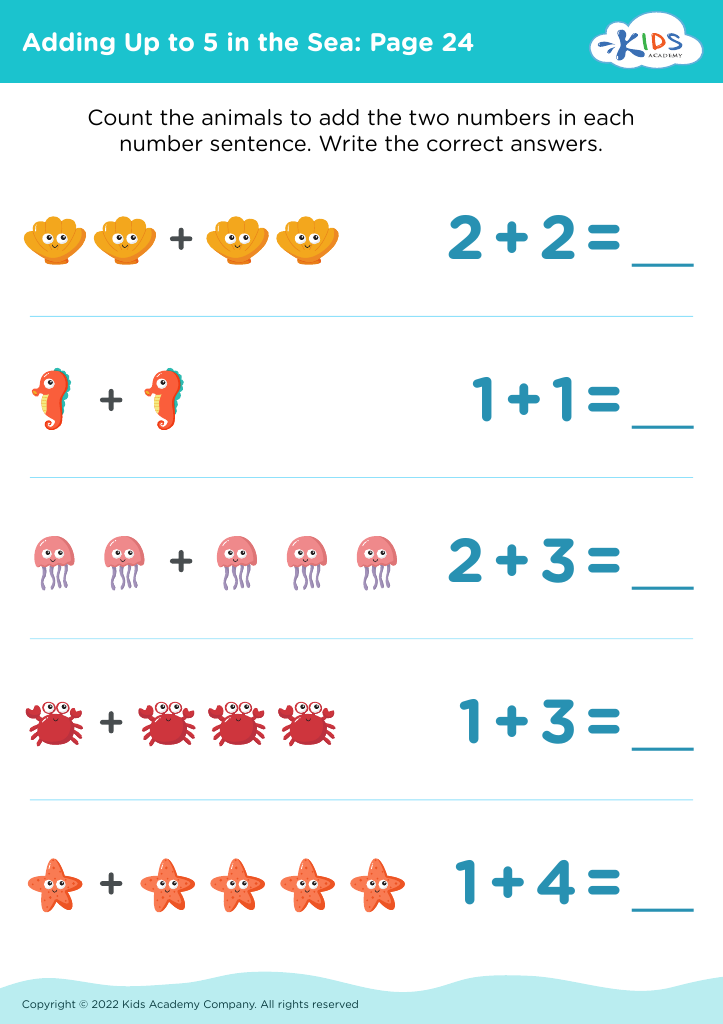
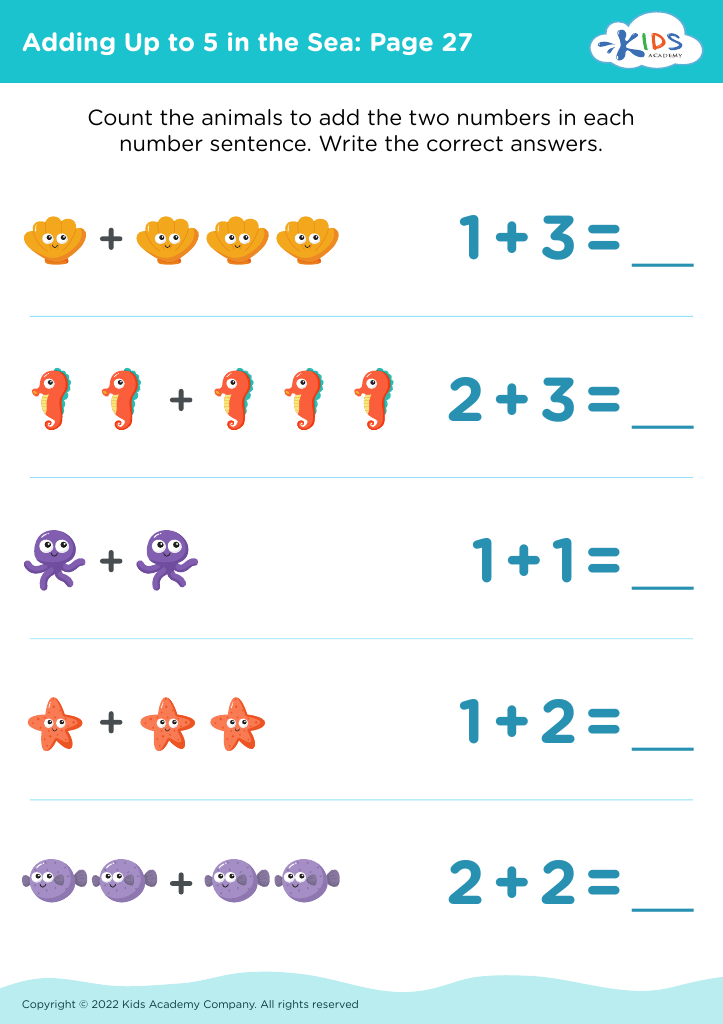
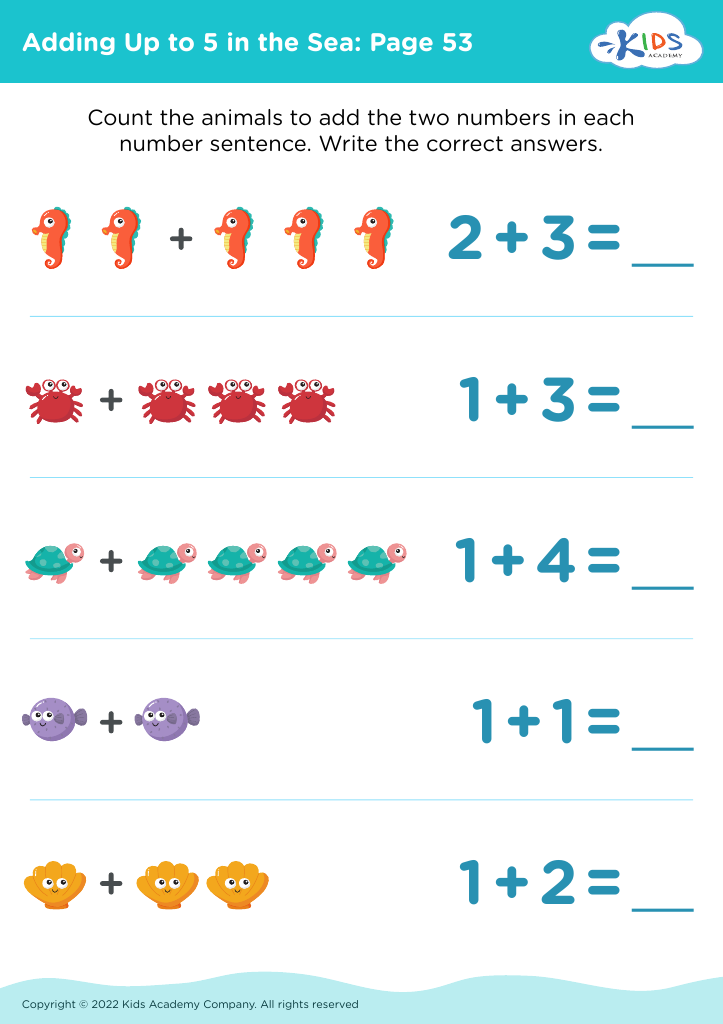

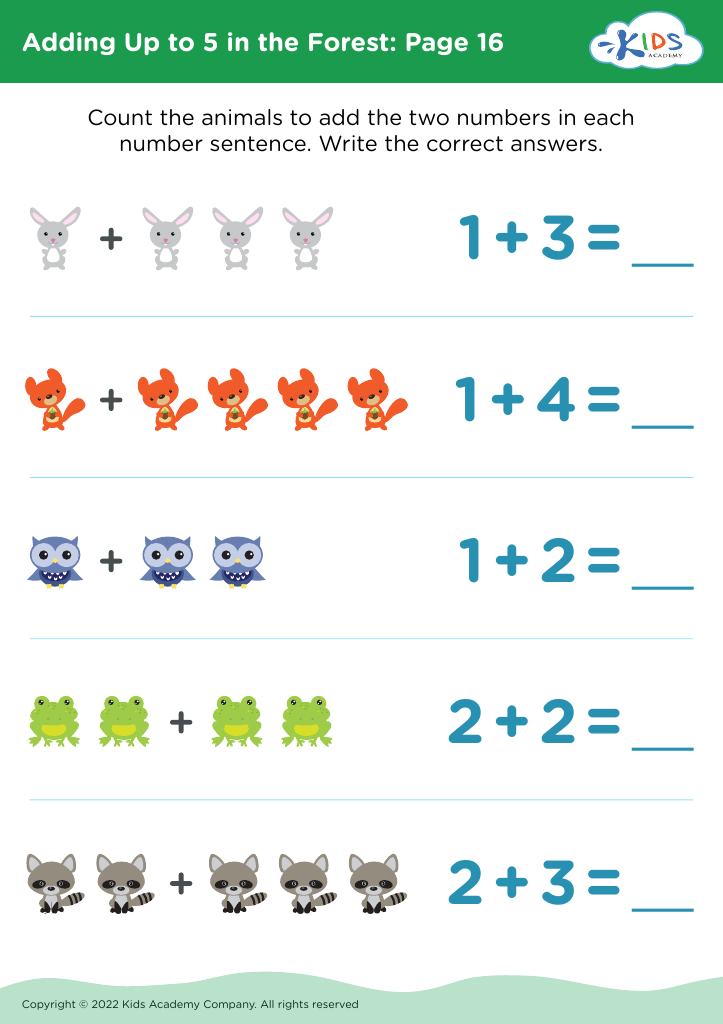
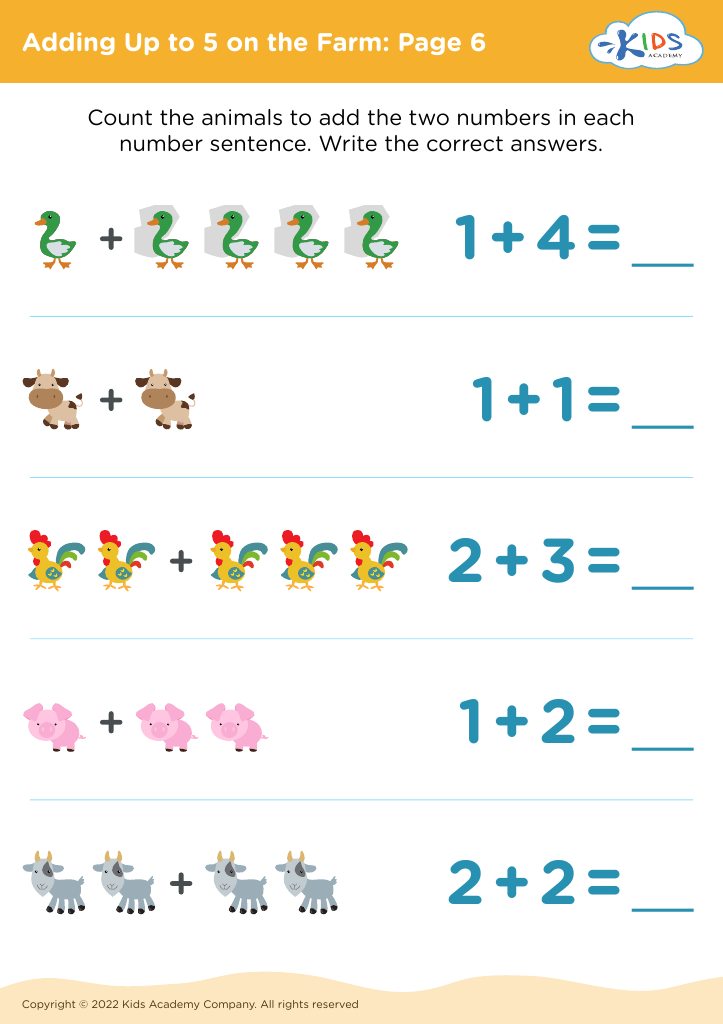
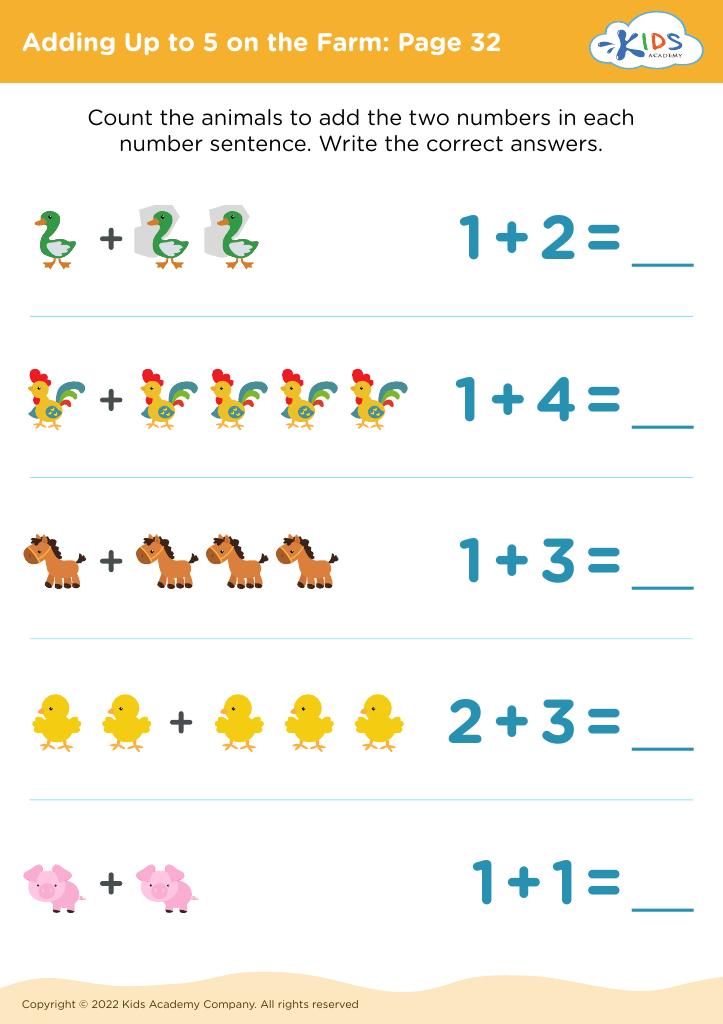
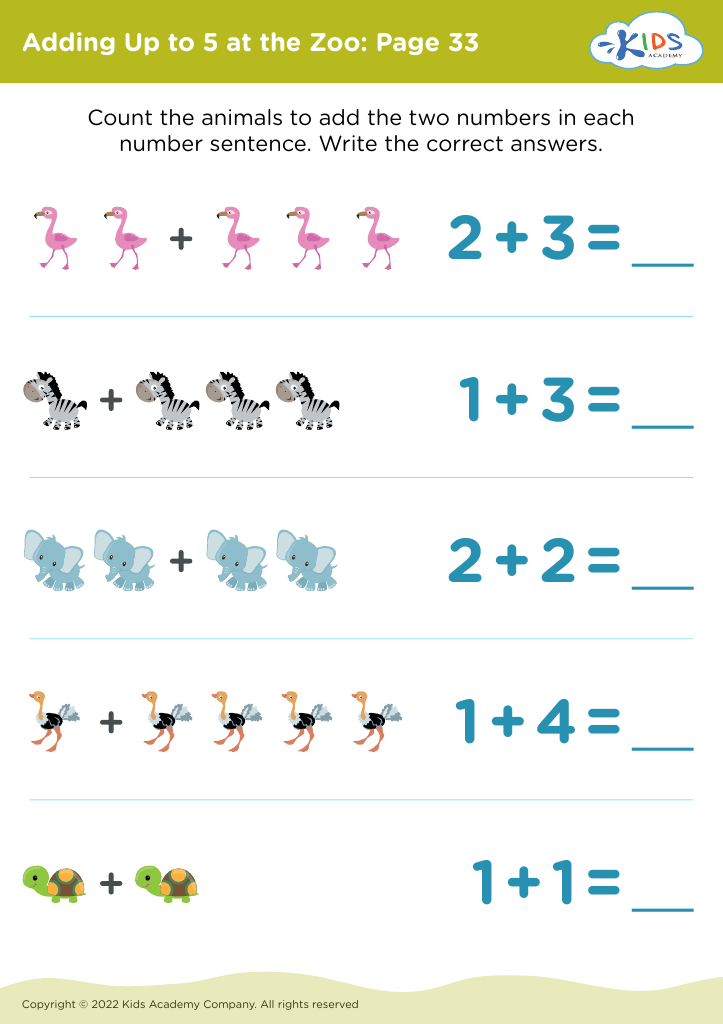

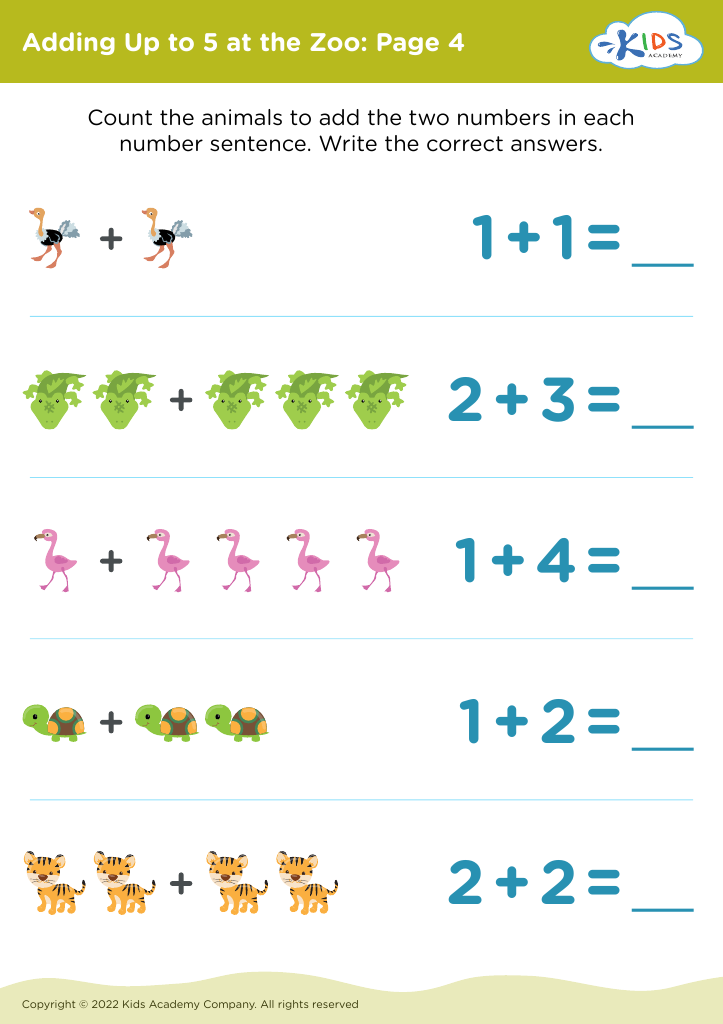
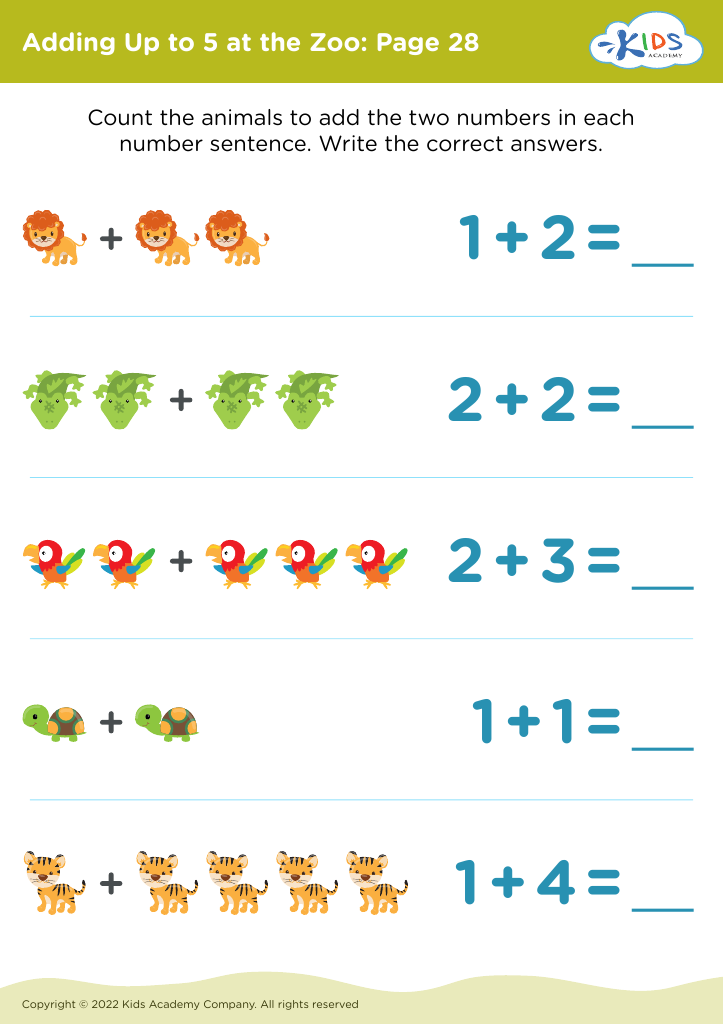
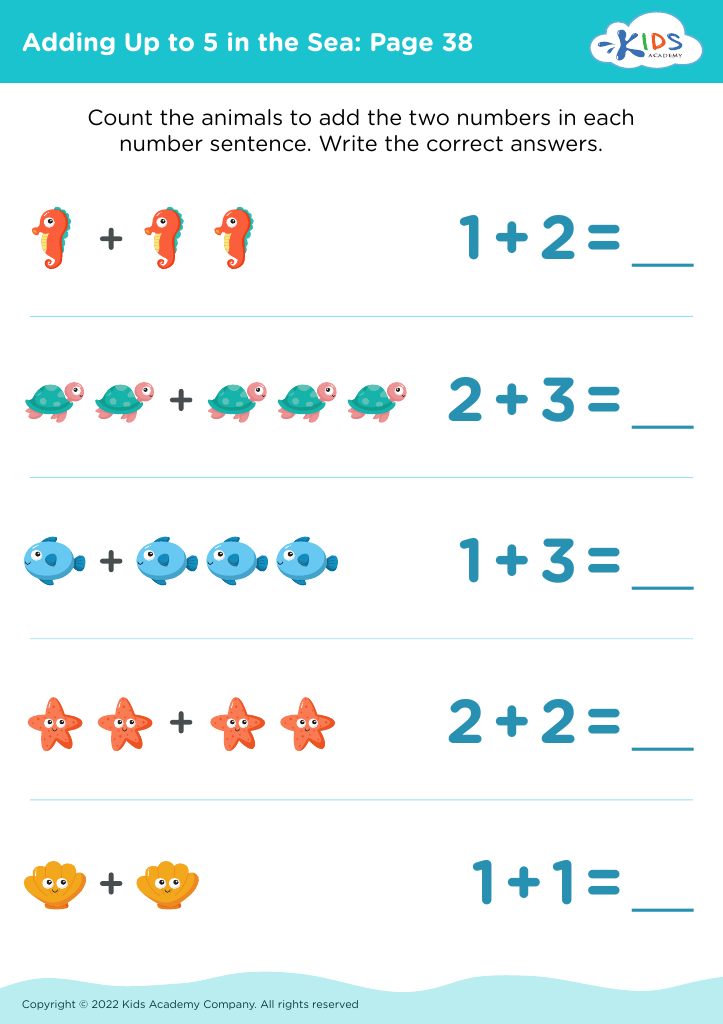
 Assign to My Students
Assign to My Students
